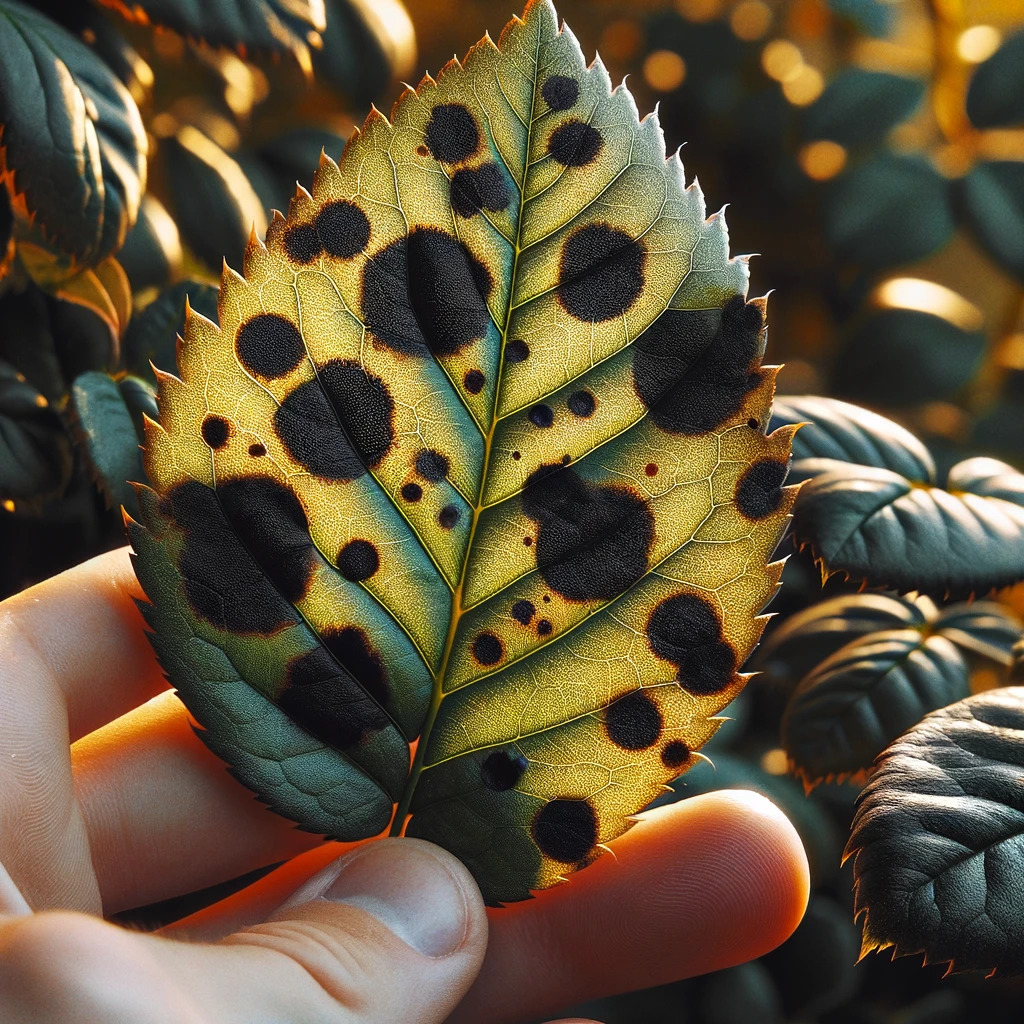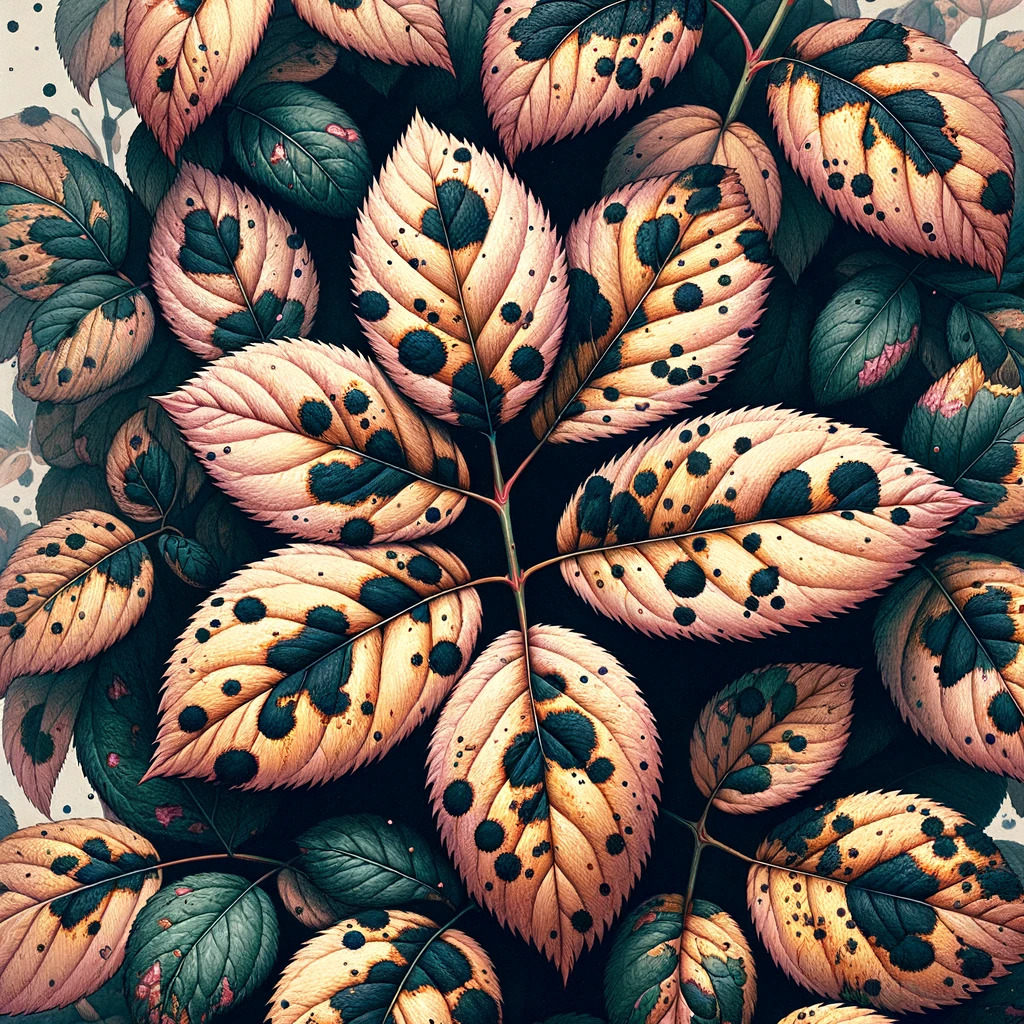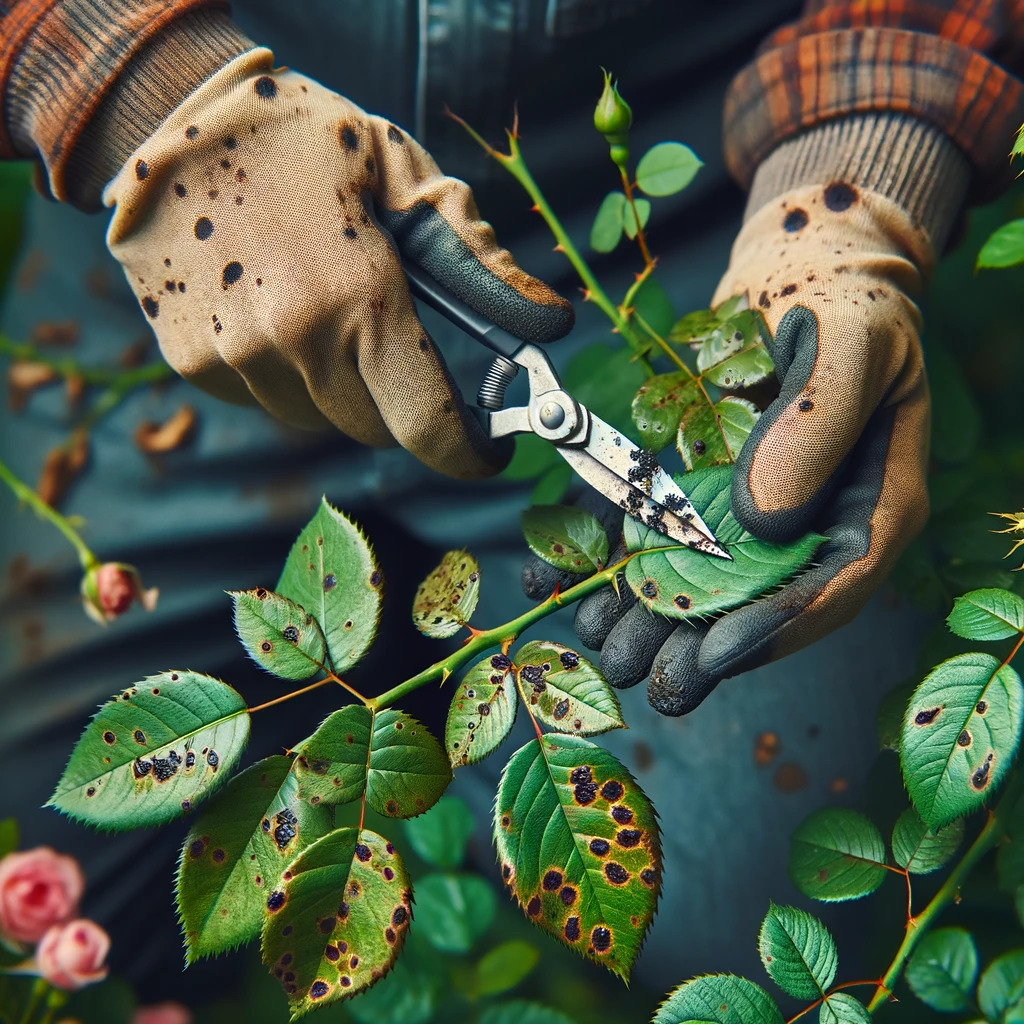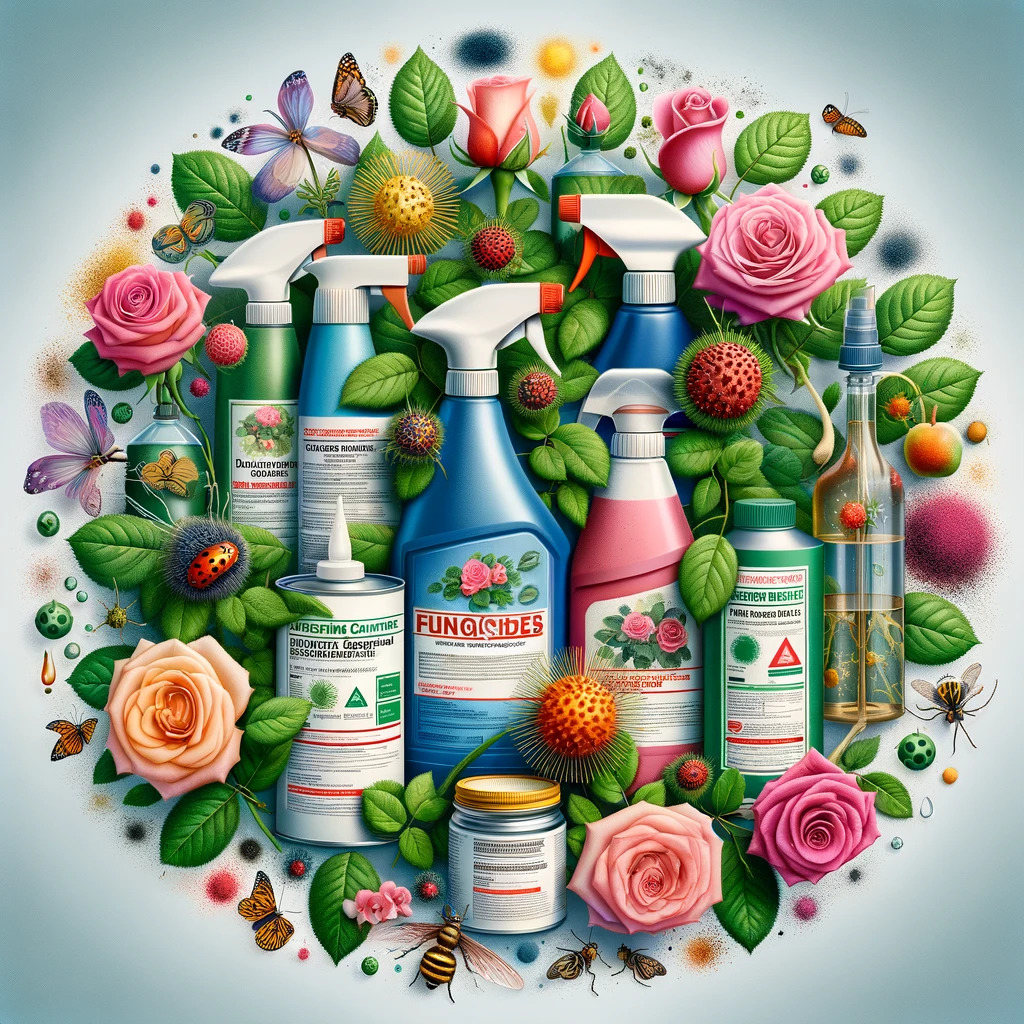
Understanding Black Spot, a Common Condition in Roses
Black spot is a fungal disease that predominantly affects roses. Characterized by circular black spots on the leaves, which eventually turn yellow and fall off, this disease can significantly weaken the plants and affect their blooming.
What Is Black Spot and How Does It Manifest?
Caused by the fungus Diplocarpon rosae, black spot creates dark, round lesions on rose leaves. These spots are initially small but can grow and merge, affecting large areas of the leaf.

Susceptible Roses: Identifying Plants at Risk
Although all rose varieties can be affected, some are more susceptible than others. It is important for gardeners and farmers to identify the most resistant and susceptible varieties to this disease.
Rose Varieties More Resistant to Black Spot
- Knock Out Roses: Famous for their disease resistance, including black spot.
- Floribunda Roses: Several Floribunda varieties are known for their resistance to black spot.
- David Austin Roses (some varieties): Many David Austin roses have been bred for disease resistance.
- Rosa ‘Carefree Beauty’: Known for its robustness and disease resistance.
- Rosa ‘Sunsprite’: A Floribunda variety known for its resistance.
Rose Varieties More Susceptible to Black Spot
- Rosa ‘Sterling Silver’: Known for its susceptibility to black spot.
- Hybrid Tea Roses (many varieties): Often susceptible to diseases like black spot.
- Rosa ‘Tropicana’: A beautiful rose that unfortunately is prone to black spot.
- Rosa ‘Queen Elizabeth’: Although popular, it has a known susceptibility to this disease.
- Rosa ‘Peace’: Despite its popularity, it is susceptible to black spot.
It is important to mention that resistance to diseases like black spot can vary depending on growing conditions and the care given to the plants. Additionally, ongoing breeding efforts may lead to the development of new varieties with different levels of resistance or susceptibility.

Impact of Black Spot on Roses
This disease not only affects the aesthetics of roses but also reduces their vigor. Affected leaves can fall prematurely, weakening the plant and decreasing its resistance to other diseases and environmental stress.
Prevention and Control Strategies
Prevention is key in managing black spot. Some strategies include:
- Growing resistant varieties: Choosing roses that are less prone to the disease.
- Proper cultural practices: Maintaining good air circulation and avoiding excessive moisture on the leaves.
- Garden cleanliness: Removing and disposing of fallen leaves to reduce sources of inoculum.

Treating Black Spot
When symptoms appear, it is important to act quickly:
- Fungicides: Applying specific fungicides for black spot control.
- Plant care: Strengthening roses with proper nutrition and regular watering.

Conclusions: Maintaining the Health and Beauty of Your Roses
Black spot can be a challenge, but with proper management, roses can thrive and bloom. Prevention, along with vigilance and timely treatment, is essential for maintaining the health and beauty of your roses.
Long-tail keywords: Effective Methods Against Black Spot in Roses, Cultivating Black Spot-Resistant Roses, Organic Strategies for Controlling Black Spot, Innovations in Black Spot Treatment, Tips for Preventing Black Spot in Gardens, Maintaining Healthy Roses Against Black Spot.
 AgronoBlog – Agriculture Blog
AgronoBlog – Agriculture Blog